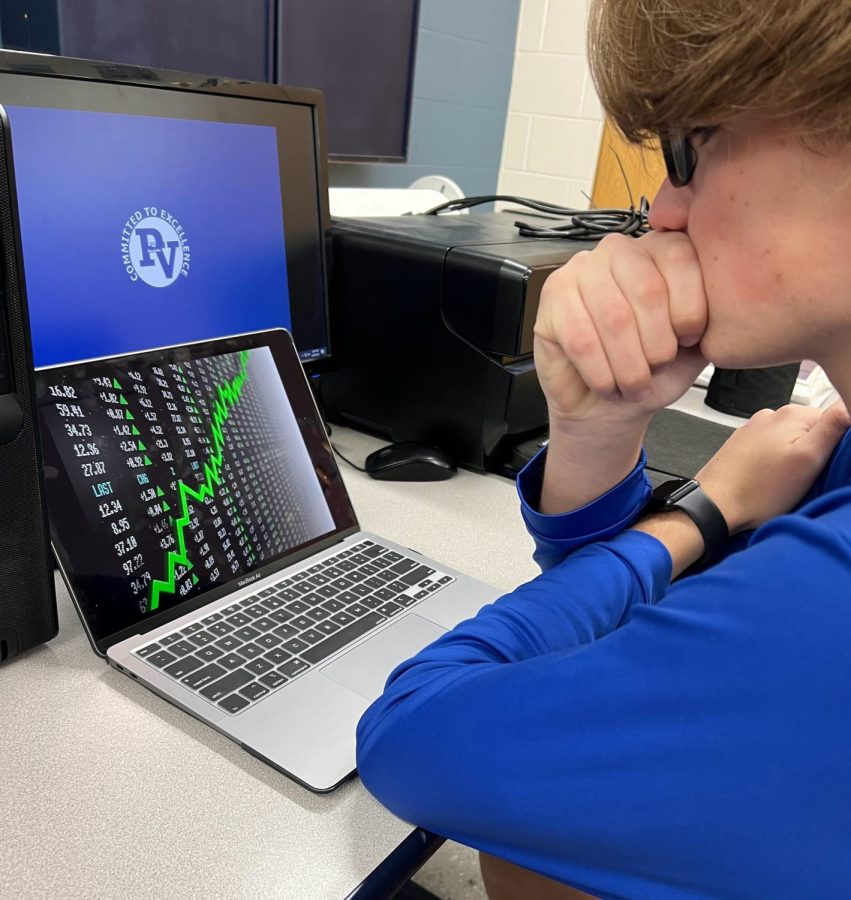The ever-growing influence of social media and the glorification of the stock market has begun to infiltrate how teens view and handle money. Before the internet, acquisitive teens always turned to hourly work to satisfy their desire for spending money. Now, the internet has provided teens with an array of ways to supposedly make good money online; some options more dangerous than others.
One of the most popular options recently has been day-trading. Day-trading is the practice of buying and selling stocks with the hope of profiting off the unpredictable fluctuations of a stock’s value during the day. Senior Nathan Goy has participated in day-trading. “I started day-trading with a sub-par understanding of risk. The volatility of stocks on a day-to-day basis has allowed me to gain quick and lose quick. Luckily I have been able to stay positive,” he said.
The quick and seemingly effortless gains can often obscure investors’ view of long-term progress, which can often be furtively negative. PV personal finance teacher Rita Brown, a former accountant, has seen the effects of day trading in accounting and the tendencies of day-trading among teens.
“If you get thrilled about a $300 gain in a day, you sometimes forget that you had four days of losses because you are so struck by that one day of gain. You have to look at it over a period of time to really know whether it is worth it,” she stated.
When looking at the long-term gains, investing in diversified index funds has proven effective for decades. In his book “A Random Walk Down Wallstreet,” Burton Malkiel discusses the nature of the different types of investing. “It is not hard to make money in the market. What is hard to avoid is the alluring temptation to throw your money away on short, get-rich-quick speculative binges. It is an obvious lesson, but one frequently ignored,” Burton writes.
In recent years, social media platforms have enabled online programs to make promises of quick and effortless wealth. The orchestrators of these programs create elaborate advertisements for their pay-to-view courses.
Social media personality and businessman Andrew Tate has recently garnered support for his online course through his bold personality and flashy videos showcasing his rare Bugatti. Unfortunately, Hustler’s University, Tate’s program, came crashing down on Aug. 20th, amidst all his social media accounts being banned due to his very controversial views.
Both day-trading and online finance courses have the potential to be detrimental to teens’ financial situations. The unpredictability and uncertainty of day-trading allows for a high possibility of losing big and the underwhelming content of online courses may have teens regretting the fee they shelled out to view the content.
While day-trading is thought to be less effective and more time-consuming than long-term investment, some see the value in the experience of taking small-scale risks. Gathering an understanding of the risks associated with stocks at a young age can allow for well-informed and safe investment decisions further down the road. A good way for teens to gain experience with risks is to use an entertainment budget to day-trade, or they could use the most popular and time-tested money gathering-strategy: getting a job.









